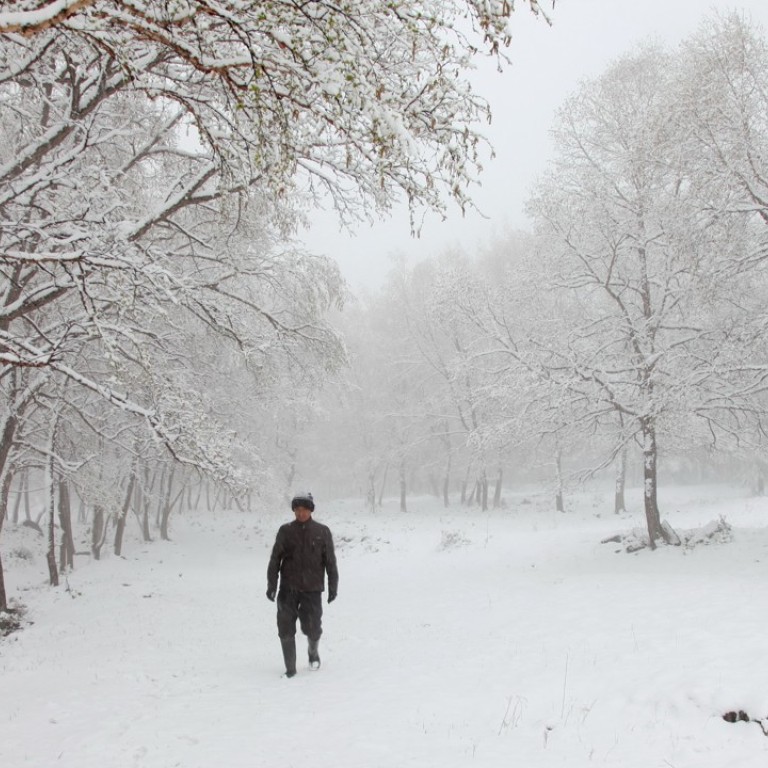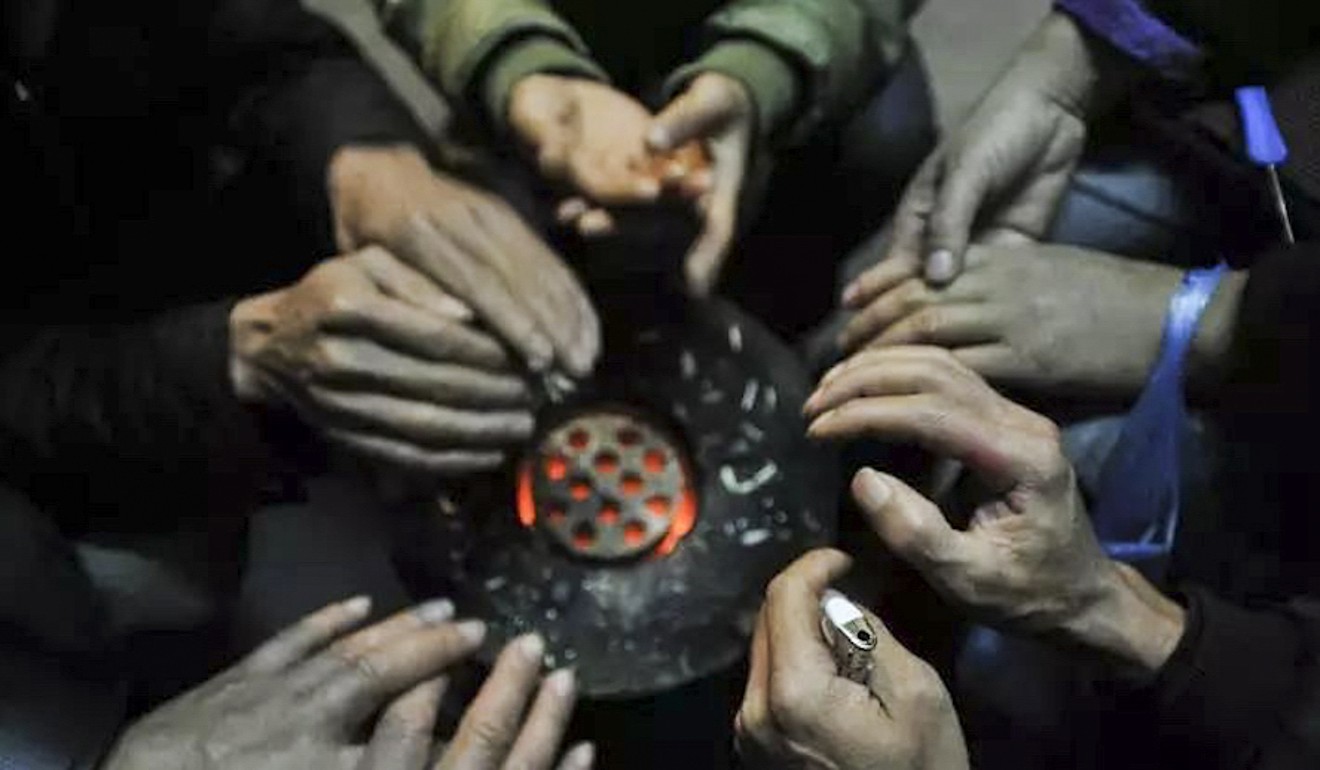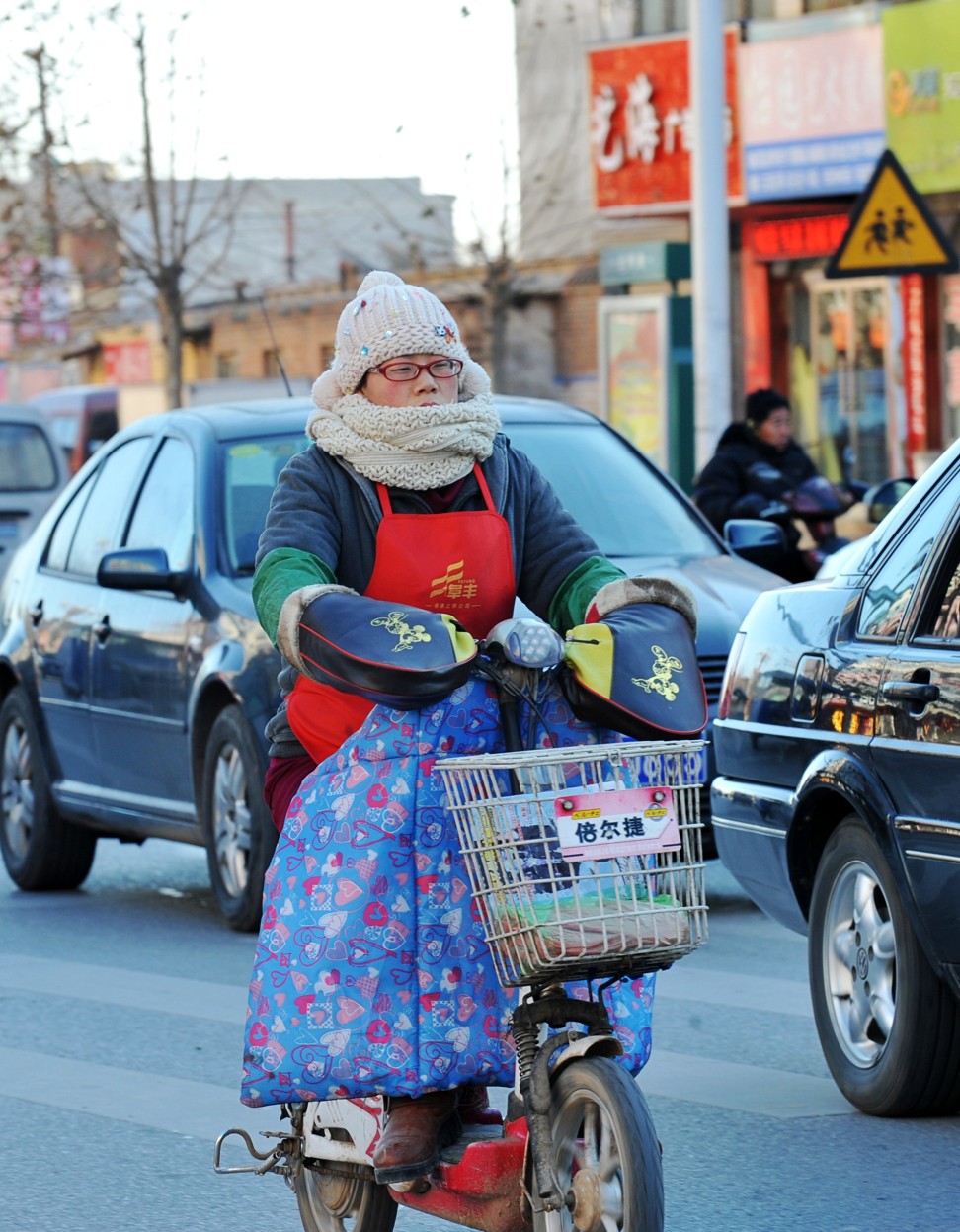
Chinese province admits homes left freezing after overzealous coal ban
Hebei province acknowledges it massively exceeded its target to ban coal use for winter heating and switch to gas and electricity, helping create fuel shortages
The northern Chinese province of Hebei has admitted that it massively exceeded its target in an overzealous ban on the use of coal to heat rural homes, switching nearly 30 per cent more households to natural gas and electricity than planned.
Beijing’s initiative across 28 cities in the north to help tackle air pollution by halting coal use for heating has led to gas shortages and families shivering in the brutal winter cold.
The policy affects millions of people, but has backfired after severe nationwide gas supply shortages and delays in pipeline infrastructure left families, schools and even hospitals without heating in freezing temperatures.
Amid a public outcry, the government had to relax the coal ban last week, allowing areas that had not converted fully to gas to return to coal burning for heating.
Hebei, which is responsible for over half of the target set by Beijing’s plan to phase out coal heating, confessed it had pushed the programme too aggressively and far exceeded the target set by the provincial government at the beginning of the year.
Jiao Shiqing, an official with Hebei’s housing and urban development department, said on Monday that the province had switched 2.3 million rural households to gas and another 200,000 to electricity this year – 27 per cent more than the target of 1.8 million.
“The number of completed switches from coal to gas is way too much,” Jiao was quoted as saying by China Youth Daily.
Lei Yu, an official at the environment ministry, told financial news organisation Caixin that local governments’ aggressive beating of their targets might be motivated by financial subsidies and an urge to prove their performance.
“The country currently has [financial] support for the switch to gas and electricity from coal, but future subsidy policy is still unclear so some local governments want to push ahead the programme while there are still subsidies,” Lei was quoted as saying.

The target of 1.8 million for Hebei was also set in an action plan issued by the Ministry of Environmental Protection and six provinces and municipalities in August to tackle smog in the Beijing-Tianjin-Hebei region and its neighbouring areas from the autumn to winter. The 28 cities covered by the plan had a total of 3 million targeted households.
“We already discovered the problem in September and have asked everyone to control the speed of replacing coal with gas,” Jiao, the Hebei official, said.

“At the moment, the enthusiasm of municipal governments in pushing the switch to gas is running high. The number of converted households reported by various cities exceeded the provincial target by about a million, which has severely fallen beyond [our] ability to ensure the supply of gas,” the document posted on a government website said.
Local governments were forbidden to blindly push the conversion programmes beyond their target to prevent gas shortages, but the warnings proved futile with Hebei issuing an alert for gas shortages of 10 to 20 per cent in late November, calling on businesses to curtail use when necessary.
Hebei’s demand for gas this winter reached an “unprecedented level” of 8.2 billion cubic metres – a sharp increase of 134 per cent from last winter, according to Liang Yike, an official with the provincial economic planner’s energy bureau, Caixin reported.
The gas shortages are spreading from northern China to southern regions as major producer PetroChina cut off supplies to chemical producers in Yunnan and Sichuan provinces, according to a Shanghai Securities News report on Tuesday.

